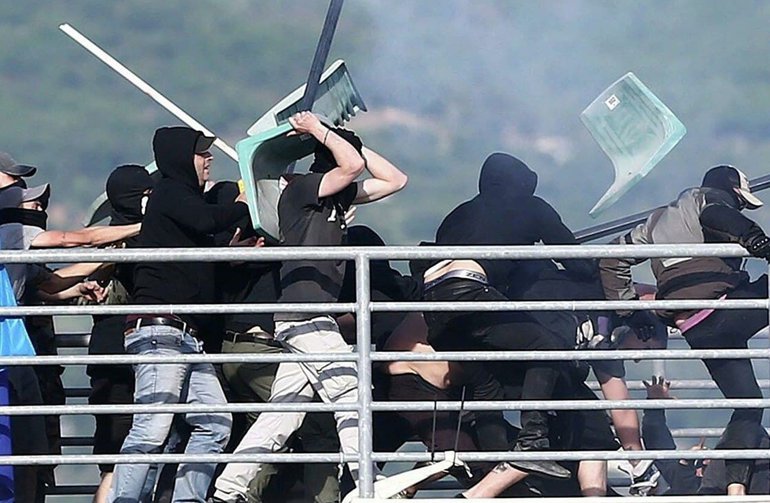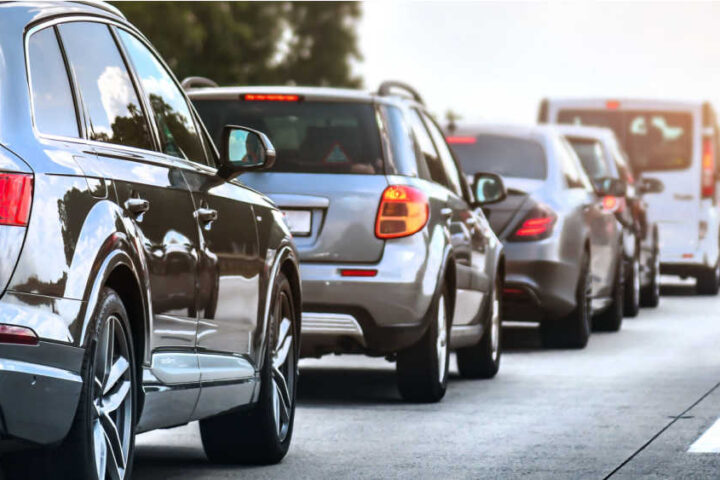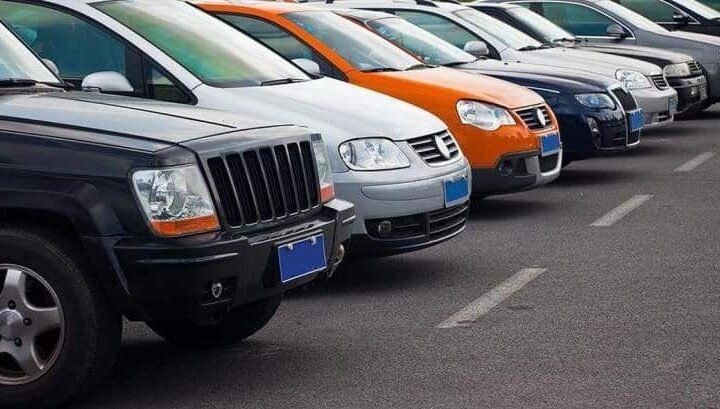There is a tendency in Cyprus to ignore that resolving social ills are the stitches that enable politics to work.
Dogma and theories present wishful thinking of what should be, but reality doesn’t follow straight lines.
The new government has been getting its feet under the cabinet table, trying to look busy managing the country and sounding reassuring.
Although the President is trying to hatch a plan to snare the Cyprus problem unicorn, there are other parts of our social fabric also in need of repair.
Our inability to reunify the island is almost matched by an ineptitude to rid the streets of football violence and other forms of hooliganism.
But public disorder is not only limited to football matches; it can spill over into basketball, volleyball, futsal, and anywhere where a sense of tribalism flourishes.
Hooliganism isn’t new, and neither is it easily eradicated.
Although there is a shocking lack of determination by the police, the clubs and the authorities governing sport to stop the violence.
How often have we heard politicians pledge this will never happen again following a stadium riot or gangs clashing with police?
Calls for tougher action follow with promises of something being done to curb destructive behaviour, but the carnage continues.
As a society, we seem to tolerate a level of violence at sporting fixtures that would be unthinkable elsewhere.
That there is no specially trained unit to combat hooliganism at sporting events tells you everything about how seriously the police take crowd control.
Sure, they blame the clubs for not keeping a check on their fans or implementing measures that have been recommended or legally binding.
Cyprus police have long been trained and advised by their British counterparts who have to deal with serious football hooliganism.
And where are these cops who have gained experience in policing large crowds and preventing trouble from flaring up?
Despite the law, not every stadium has CCTV, while the fan card has proved useless in stopping troublemakers.
If clubs are not determined to weed out the rotten apples, they might as well encourage the thugs to shame their reputation.
To his credit, President Nikos Christodoulides acted swiftly after hooligans smashed up an indoor stadium in Nicosia and torched a bus station during a basketball match.
He made it a priority issue for his cabinet to discuss and conceded that things had got so bad he wouldn’t dream of taking his children to a sporting fixture.
Toxic atmosphere
This is where those who run football, basketball or any other sport are; if they frighten families away and allow a toxic atmosphere to scar every game, then there is no future.
If parents are too scared to take their kids to games or let them go alone, football or basketball has no future in this country as a spectator sport.
Moreover, sport is nothing without spectators; empty stadiums are soulless venues where emotion and passion are drained of meaning.
We love sports because of the rivalry, the tribalism, the loyalty to our team the angst of defeat, but the game can only thrive if it is done in a safe space.
That the latest outrage happened at a basketball game which should be easier to manage, maybe tells us more about the angry society we live in than mistakes in policing.
To break the cycle of violence, the government has announced tougher measures such as drug and alcohol tests at stadiums, a permanent police unit for high-risk games and harsher sentences for violent behaviour.
Fan bans and obligatory CCTV installation are all welcome, but unless the police, the government and sporting federations join the dots to fight the menace, it will fail.
Already there are mumblings by police about the government plans being unworkable, while the President has warned that all fans will be banned if the violence continues.
Banning spectators from sporting events is an admission that the authorities neither have the capability nor the conviction to ensure public safety.
It’s like arguing that because people get drunk, all the bars have to close, or car sales will be prohibited because of bad drivers.
Britain has proved there is a way to contain hooliganism; otherwise, the Premier League would not be the world-envied product it is today.
Overcoming the ugliness takes serious investment and well-thought-out strategies that involve intelligence gathering and preventing trouble before it happens.
At the moment, we are allowing intruders to burn our house down without the means to douse the fire.










